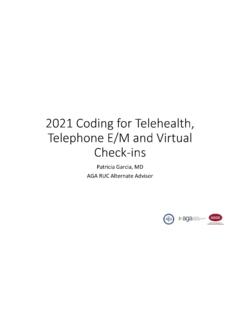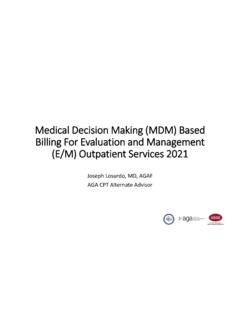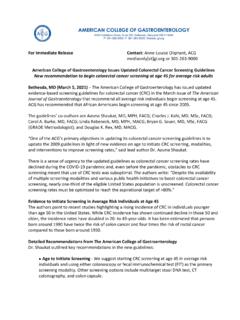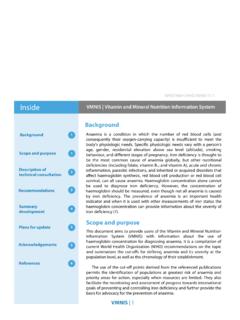Transcription of ACG Clinical Guideline: Management of Irritable Bowel …
1 Downloadedfrom 3 Unq4K4/tOJq29 Zeu9kIOM0 Jya7t9Xm5VL96 Tmh5aDk02hHT8cuv7G2V8sNWYiwTTgaerSokXnEN adZiZfP0quN67 VMQawaT1 KRUN4Fy72xBUy0g7mzCM5o3Xv7 KIYUVfUImPFvm8 DnjpkFl2EY8+Q==on 03/11/2021 Downloadedfrom 3 Unq4K4/tOJq29 Zeu9kIOM0 Jya7t9Xm5VL96 Tmh5aDk02hHT8cuv7G2V8sNWYiwTTgaerSokXnEN adZiZfP0quN67 VMQawaT1 KRUN4Fy72xBUy0g7mzCM5o3Xv7 KIYUVfUImPFvm8 DnjpkFl2EY8+Q==on 03/11/2021 ACG Clinical Guideline: Management of IrritableBowel SyndromeBrian E. Lacy, PhD, MD, FACG1, Mark Pimentel, MD, FACG2, Darren M. Brenner, MD, FACG3, William D.
2 Chey, MD, FACG4,Laurie A. Keefer, PhD5, Millie D. Long, MDMPH, FACG (GRADE Methodologist)6and Baha Moshiree, MD, MSc, FACG7 Irritable Bowel syndrome (IBS) is a highly prevalent, chronic disorder that significantly reduces patients quality of in diagnostic testing and in therapeutic options for patients with IBS led to the development of this first-everAmerican College of Gastroenterology Clinical guideline for the Management of IBS using Grading of Recommendations,Assessment,Development,a ndEvaluation(GRADE) a comprehensive literature search.
3 9 questions focused on diagnostic testing; 16 questions focused on therapeuticoptions. Consensus was obtained using a modified Delphi approach, and based on GRADE methodology, we endorse thefollowing:Wesuggestthatapositivediagn osticstrategyascomparedtoadiagnosticstra tegyofexclusionbeusedtoimprovetime to initiating appropriate therapy. We suggest that serologic testing be performed to rule out celiac disease in to rule out inflammatory Bowel disease. We recommend a limited trial of a low fermentable oligosaccharides,disacchardies,monosacch arides,polyols (FODMAP) dietin patients with IBS to improve globalsymptoms.
4 We recommendthe use of chloride channel activators and guanylate cyclase activators to treat global IBS with constipation symptoms. Werecommend the use of rifaximin to treat global IBS with diarrhea symptoms. We suggest that gut-directed psychotherapy beused to treat global IBS symptoms. Additional statements and information regarding diagnostic strategies, specific drugs,doses, and duration of therapy can be found in the MATERIAL accompanies this paper J Gastroenterol 2021;116:17 44. ; published online December 14, 2020 INTRODUCTIONI rritable Bowel syndrome (IBS) is a chronic, often debilitating, andhighly prevalent disorder of gut-brain interaction (previously calledfunctional gastrointestinal [GI] disorders) (1,2).
5 In Clinical practice,IBS is characterized by symptoms of recurrent abdominal pain anddisordered defecation (1,3). The Rome IV criteria, derived by con-sensus from a multinational group of experts in thefield of disordersof gut-brain interaction, can be used to diagnose IBS for both clinicaland research purposes (4). Patients with IBS should report symp-toms of abdominal pain at least once weekly (on average) in asso-ciation with a change in stool frequency, a change in stool form, and/or relief or worsening of abdominal pain related to defecation(Table 1).
6 Although bloating is a commonly reported symptom, itspresence is not mandatory to accurately diagnose IBS (4).IBS is a common source of referrals to gastroenterologists with aprevalence of approximately in the United States,United Kingdom, and Canada and affects most commonly womenand individuals younger than 50 years (5). Symptoms of IBS greatlyaffect patients quality of life (6,7), and this marked negative impactis highlighted by 1 study which reported that a majority of patientswouldgiveup10 15 years of life expectancy for an instant cure fortheir condition and by another study which found that patients withIBS would accept a median risk of sudden death of 1% if a hypo-thetical medication could cure their IBS symptoms (8,9).
7 IBS causes a significant burden to health care systems highlighted in a recent review article, direct medical costs at-tributed to IBS in the United States, excluding prescription andover-the-counter medications, are estimated to be as high as$ $10 billion per year (10). High levels of health care resourceutilization, testing that is often unnecessary or performed too fre-quently, and significant regional variation in testing and treatmentfurther contribute to substantial direct and indirect costs (11,12).The Management of IBS has been examined in several recentmonographs, reviews, and position statements (1,3,4).
8 Thesepublications summarize and review data and provide manage-ment recommendations based on meta-analysis and/or expertopinion. However, essential diagnostic and treatment recom-mendations have not been formally evaluated by the American1 Division of Gastroenterology and Hepatology, Mayo Clinic, Jacksonville, Florida, USA;2 Division of Gastroenterology and Hepatology, Cedars-Sinai, Los Angeles,California, USA;3 Division of Gastroenterology and Hepatology, Northwestern University, Chicago, Illinois, USA;4 Division of Gastroenterology and Hepatology,University of Michigan, Ann Arbor, Michigan, USA.
9 5 Icahn School of Medicine at Mount Sinai, New York, New York, USA;6 Division of Gastroenterology andHepatology, University of North Carolina, Chapel Hill, North Carolina, USA;7 Division of Gastroenterology and Hepatology, University of North Carolina, College ofMedicine, Charlotte, North Carolina, :Brian E. Lacy, PhD, MD, FACG. E-mail: April 15, 2020; accepted October 8, 2020 2020 by The American College of GastroenterologyThe American Journal ofGASTROENTEROLOGYCLINICAL GUIDELINES17 Copyright 2020 by The American College of Gastroenterology.
10 Unauthorized reproduction of this article is of Gastroenterology (ACG) using rigorous Grading ofRecommendations, Assessment, Development, and Evaluation(GRADE) methodology. This ACG Clinical guideline was de-veloped to provide clinicians with high quality evidence, whenavailable, to support essential Clinical questions relevant to thediagnosis and Management of IBS (Table 2).SCOPE OF THE GUIDELINE AND METHODOLOGYThis guideline will focus on key issues related to the diagnosis andmanagement of IBS. Given the complexity of IBS, it is not possibleto address all diagnostic and Management issues.





